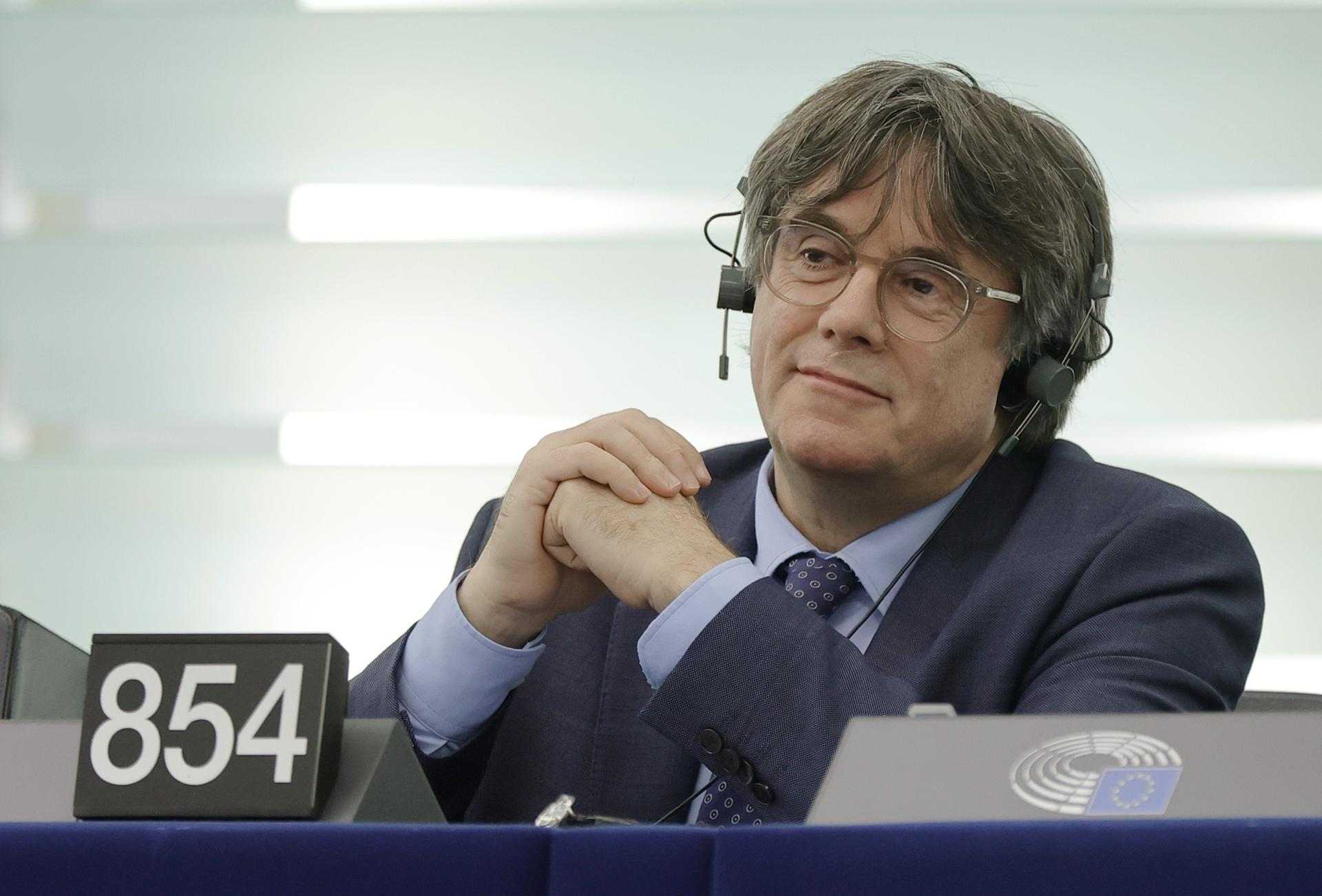An open conflict. The Spanish public prosecutor assigned to the National Audience court, Miguel Ángel Carballo, has once again written a very strongly-argued text opposing the decisions of judge Manuel García-Castellón, reiterating that there are no indications of a crime of terrorism in the Democratic Tsunami case, as he had already concluded last November, and also no new evidence to justify elevating the case to the Supreme Court, the result of the judge's insistence in accusing people like Catalan president-in-exile Carles Puigdemont and ERC deputy Ruben Wagensberg, who has moved his address to Switzerland for fear of being arrested.
"It is unjustified and unmotivated", says the prosecutor on the proposal to elevate the Tsunami case to the Supreme Court. He describes the magistrate's actions as "incongruous", according to a submission he presented this week, which ElNacional.cat has examined this Friday.
No evidence
The prosecutor does not mince his words, asserting: "Up till now, the investigating judge has carried out inquiries that have had no effect on or provided any new data with regard to the indictment of the two [accused parliamentarians], it being particularly significant regarding the former Catalan president Puigdemont, to whom not even the Civil Guard attributed any of the actions that are the subject of the investigation."
And he adds: "The proceedings have focused on investigating, or better said, confirming, the consequences of the actions of public disorder carried out in Catalonia at the end of 2019 by various groups and by various people, but none of the investigative actions agreed upon or carried out has had any relevance to the supposed responsibility of the [accused parliamentarians]. What's more - the prosecutor stresses - they have extended the procedural actions to the investigation of actions that are not even included in the Civil Guard intelligence reports, thus broadening the subject of the procedure in a way which lacks justification."
Tsunami is not the CDRs
The prosecutor even shares with the defence lawyers that the National Audience judge has expanded the actions of which the defendants could be accused and that "he confuses the actions of Tsunami with those of the CDR. These are very different entities or actions". And one proof of this, Carballo points out, is that in testimonies by the Civil Guard, one of those investigated showed his interest in contacting and getting support from the CDRs, "a fact - he concludes - that shows they are not the same phenomenon".
In fact, in the Operation Judas case, in which 12 members of the Committees for the Defence of the Republic (CDRs)12 were investigated - also under the prosecutor Carballo and the same judge, García-Castellón - the prosecutor does accuse the 12 activists of terrorist organization. The prosecutor is asking for sentences of 8 to 27 years in prison for the 12, who are awaiting trial.
Boye demands explanation over judge Aguirre's TV interview
Meanwhile, defence lawyer Gonzalo Boye is asking for explanations about the actions of a second Spanish investigative judge - Joaquín Aguirre, of the Barcelona courts - who is also attempting to gather evidence for alleged pro-independence crimes serious enough (in this case, treason) to remain unprotected by the amnesty law. Boye, lawyer to Josep Lluís Alay and Carles Puigdemont, has asked the dean judge of Barcelona, Cristina Ferrando, for explanations about the interview given by judge Aguirre this week on German public television, in which he talked about the previously-dormant Volhov case whose inquiries he is now racing to pursue.
In his text, Boye demands information to determine who authorized access to the judicial premises (at Barcelona's Ciutat de Justicia complex) for the camera people and journalists to do the interview. In addition, he wants information about the date the interview was authorized and when it was recorded. Finally, if it is confirmed that everything was authorized, the lawyer asks if anyone reminded the judge Joaquín Aguirre of the legal prohibition on speaking about court procedures that he himself is conducting. Boye states in the text that he has informed Barcelona's Dean Judge that the interview with Aguirre directly affects his client and has an impact on the rights of Josep Lluís Alay, as recognized in the Charter of Fundamental Rights of the European Union. These rights, he asserts, "have been ostensibly violated" as a result of the interview.

